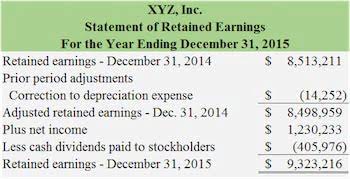The Pros & Cons of a Sole Proprietorship & Corporation Chron com

These business structures treat company debt and taxes differently than compared to an incorporated entity. Like sole proprietorships, partnerships don’t pay income taxes themselves. Instead, they file a tax return describe some of the advantages of forming a business as a corporation. showing how much profit they made, if any, and then the partners pay taxes on that profit as personal income. Partners will be taxed on the profit regardless of whether they actually received that profit in cash.
Decide Where to Operate and Comply With Local Laws
Individuals cannot personally own a corporation, as these entities are separate from their owners. Also, a corporation is governed by a board of directors instead of an individual owner. While forming a corporation can be very beneficial, you won’t have control of your company the way you would with a sole proprietorship.
Does a Company With LLC Status Belong to the Business Owner?
There are federal and state rules and regulations that dictate who can serve on a board of directors. In most cases, family members and spouses cannot serve on a small corporation’s board simultaneously. Organizing your business as a corporation offers many advantages, but there are also disadvantages that must be considered. Commonly used by charitable, educational, and religious organizations to operate without generating profits.

What is the management structure in a corporation?
- A private corporation has a centralized group of investors that have limited options for transferring or selling their shares.
- The process of incorporation gives the business entity a distinct feature that protects its owners from being personally liable in the event of a lawsuit or legal claim.
- As one of the most common types of corporations, a C corporation can have an unlimited number of shareholders and is taxed on its income as a separate entity.
- Organizing a business in corporate form allows a company to function independently from the owners of the business.
- If the situation cannot be resolved, it is followed by a filing for bankruptcy.
- Once the corporation is formed, you can begin issuing shares of stock to shareholders.
Additionally, there are legal requirements and annual documentation that must be submitted. Because there are many government agencies that monitor corporations, fulfilling the paperwork necessary to meet all requirements can be cumbersome. If owners die or want to dissolve their shares, they simply sell or transfer their ownership to someone else. The only way a corporation ends is if it deliberately ended through liquidation or other means. When a company is private, it’s owned and controlled by one person or a small group of people. The shares are held privately from the remainder of the shareholders/public and their stock prices are not published.
- Partnerships offer flexibility and shared decision-making, but it’s crucial to have a well-defined partnership agreement in place.
- For example, incorporating in a different state may require you to file a foreign corporation.
- Discover the essential onboarding best practices to ensure a seamless and effective integration of new employees into your organization.
- In addition to these advantages, forming a corporation can also provide other benefits that contribute to the success and growth of your business.
- Should you choose another entity, your entity formation process will differ from the incorporation process.
“I think both is required, and also entirely working in the office is not the way to go, because it puts people under a lot of stress in terms of personal life responsibilities,” he said. This includes not only additional reports and publicly disclosed facts about the inner workings and financial details but also regular filing of taxes and other regulatory reports on often a monthly or quarterly basis. Check with your state’s secretary of state office to ensure the name is available and complies with any naming requirements. A registered agent is a person who has the right and ability to accept paperwork and mail on behalf of the company.

The board of directors comprises a group of individuals who are elected to represent shareholders. They are tasked with making decisions on major issues affecting the shareholders, and they also create policies to guide the management and daily operations of the corporation. A corporation is required to name a board of directors before it can commence operations, and the members of the board of directors are elected by shareholders during the annual general meeting. Each shareholder is entitled to one vote per share, and they are not required to take part in the day-to-day running of the corporation. However, shareholders are eligible to be elected as members of the board of directors or executive officers of the corporation. S Corporation is created in the same way as a C Corporation but is different in owner limitation and tax purposes.
The biggest disadvantage of a sole proprietorship is the absence of personal liability protection. Since the sole proprietorship owner and business are legally considered as one, the owner is personally responsible for all business obligations and debts. This also means, if the business owner dies, the business enterprise ends. The process of incorporation gives the business entity a distinct feature that protects its owners from being personally liable in the event of a lawsuit or legal claim. Before discussing the advantages and disadvantages of a corporation, we must first understand what makes up a corporation. The simple definition of a corporation is a legal business entity that exchanges ownership of a company, also known as stock, through shares.

